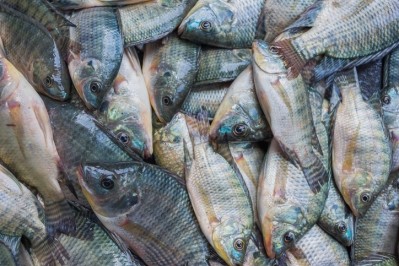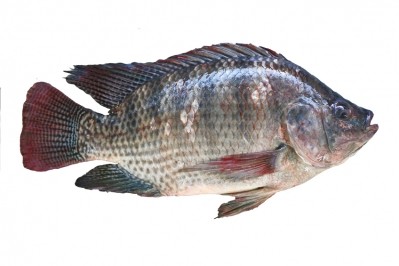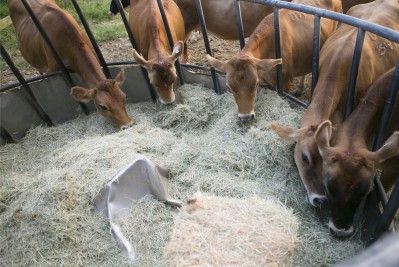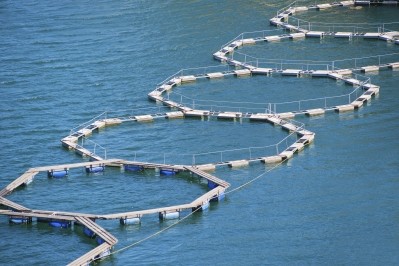Tilapia show performance, health boost from essential oil use
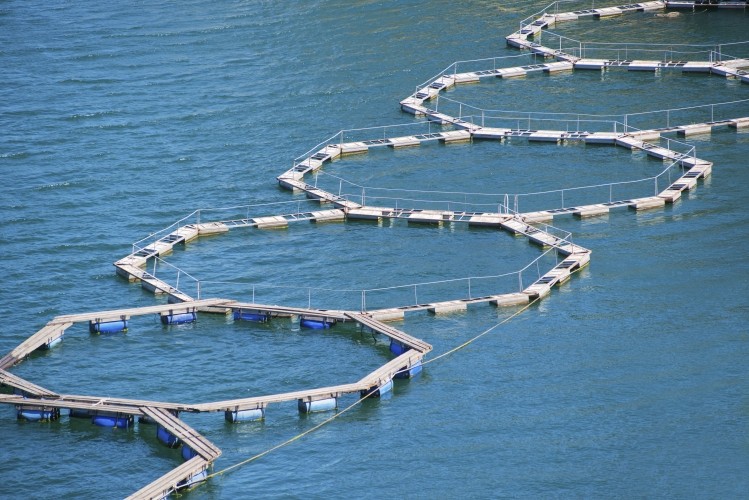
A team of researchers from Brazil examined the use of several essential oils in the production of farmed Nile tilapia facing a disease threat. The group published their work in the journal Aquaculture.
“This study aimed to verify the effects of supplementation with ginger and clove basil essential oils on the growth, hemato-immunological parameters and resistance to infection with S. agalactiae in Nile tilapia,” they said.
They found the supplementation of tilapia diets with levels of ginger and clove basil essential oils improved fish growth, the immune response in face of disease challenge and disease resistance.
“Clove basil oil (0.5%) provided better growth and weight gain during the experimental period,” said the researchers. “The essential oils of clove basil and ginger improved the immune response against S. agalactiae, a pathogen that causes great losses in tilapia farming.”
Additionally, the group of fish with the best survival rate received 0.5% ginger in their diet, the researchers said. “After challenge, the only group with 100% relative survival was 0.5% ginger, while control had 2.86% mortality,” they added.
Why essential oils?
Nile tilapia is a commonly farmed fish in many countries, said the researchers. But production faces challenges from bacterial infections, which can cause high mortality rates.
Most of the bacterial infections are caused by Streptococcus, with the strains S. agalactiae and S. iniae, they said. “S. agalactiae causes diseases in other fish species, but, in particular, Nile tilapia is highly susceptible,” they added.
Although vaccines for S. agalactiae exist, they can be hard to administer, they said. Also, fish remain vulnerable to several other diseases.
Previous studies have explored the prophylactic properties of natural products in fish, and there is a trend toward use of plant extracts to improve immune response, said the researchers. Natural products carry the advantage of reduced toxicity, contamination and limited potential to generate antibiotic-resistant bacteria.
Plants in the genus Ocimum, or basils, like clove basil, have shown antimicrobial properties in past studies with North African catfish, silver catfish, tambaqui and matrinxa, they said. Other plants in the genus also have been used to boost fish growth, and improve immune responses and disease resistance.
But the effect of dietary supplementation with clove basil essential oil on fish has not been examined, said the researchers. Similarly, although work has been done with dried or powdered ginger, no work has been done with the essential oil, they said.
Study details
In the trials, 1,070 juvenile Nile tilapia were given one of seven diets for 55 days and then challenged by S. agalactiae, said the researchers. The diets included a control, the diet with clove basil essential oil at 0.5%, 1% and 1.5%, and the control diet with ginger essential oil at 0.5%, 1% and 1.5%.
Fish groups were observed for 10 days after the disease challenge, they said. Relative percent survival (RPS) was established.
Blood samples were collected on days 35 and 55 of supplementation and 10 days after infection and used for hemato-immunological assays, they said. Sample fish were weighed every 10 days and the specific growth rate (SGR) and feed conversion ratio (FCR) were calculated.
Findings
Fish readily consumed both control and supplemented diets, said the researchers. “Dietary supplementation with essential oils was useful for improving growth, immune responses and disease resistance,” they added.
Fish getting the essential oil supplements responded best to the addition of 0.5% clove basil in terms of improved feed conversion, said the researchers. However, after 55 days, fish getting 1.5% clove basil or ginger had lower weight and were shorter than the control group.
“In the SGR, 0.5% clove basil was similar to the control and higher than the others, while 1.5% ginger presented the lowest values,” they said. “The FCR was significantly better in 0.5% clove basil than in all other groups, while 1.5% ginger presented the highest values.”
By day 55, neutrophils were higher for fish getting the diet with 1% ginger, when compared to fish getting 1.5% but none of the groups differed from the control, they said. Fish getting the 1.5% ginger supplement had reduced erythrocytes compared to all other groups and those getting 0.5% ginger had hematocrit results similar to control and above other diets.
Fish getting 0.5% ginger and 1% basil had similar hemoglobin concentrations to control, with other groups have lower values, they said.
On day 10 after infection, most groups were similar to control for leukocytes and lymphocyte values, save those getting 1%, 1.5% ginger and 0.5% basil, which were lower, they said. All groups were similar to control for thrombocyte numbers, except those getting 1% ginger, which were reduced, and fish getting 1% basil were similar to control for neutrophils numbers while all other groups were lower.
Also after infection, fish getting 1.5% ginger or basil supplements were close to control for phagocytic activity and all other groups had higher percentages of phagocytosis.
Source: Aquaculture
Title: Effect of dietary essential oils of clove basil and ginger on Nile tilapia (Oreochromis niloticus) following challenge with Streptococcus agalactiae
DOI: 10.1016/j.aquaculture.2016.10.020
Authors: A. Brum, S. Pereira, M. Owatari, E. Chagas, F. Chaves, J. Mouriño, M. Martins
